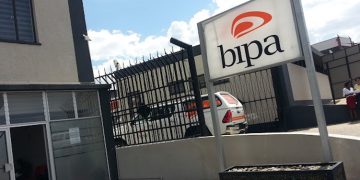
President Hage Geingob says Namibia could benefit from Cuba’s expertise and technology as it seeks to unlock and leverage renewable energy, thus ushering willingness to work together.
The President made the remarks after meeting with Cuban President Miguel Diaz Canel Bermudez who was on a three-day visit to Namibia, where the two leaders engaged on several matters including cementing existing bilateral and multilateral relationships.
“In this regard, it is worth noting that Namibia has made significant discoveries in oil, gas, and has embarked on a new area of renewable energy in the form of green hydrogen. Namibia will therefore remain open to receiving Cuban expertise and technology in our quest to unleash the potential of these natural resources for the mutual benefit of our peoples and nations,” Geingob said.
In 2022 Namibia made a breakthrough when it discovered hydrocarbons offshore Namibia’s coast after having drilled 37 unsuccessful wells in the past. As of this year, four wells have been discovered with an estimated 11 billion barrels of oil. The discoveries were mainly undertaken by Shell, TotalEnergies, Qatar Energy and National Petroleum Corporation of Namibia (NAMCOR).
In this manner, Namibia is championing renewable energy projects as an alternative to boost its power efficiency, as well as be an exporter to other countries. Among such projects are the wind and solar projects, including green hydrogen, which is touted to be a game changer in the clean energy sector.
In May, the government together with Hyphen Hydrogen Energy signed an Implementation Feasibility Agreement allowing the entity to commence with ground works. This project has a target of hydrogen production of 300,000 tonnes per year, with electrolyser output of up to 3 GW. About 15,000 jobs are envisaged to be created.
Geingob, however, said “Namibia remains dismayed at the harsh and inhumane manner in which Cuba and its people are treated by the United States of America. The ongoing economic blockade has resulted in the restriction of essential supplies from reaching our Cuban brothers and sisters due to the unilateral sanctions placed on the sovereign state of Cuba. Blocking of essential services, including medical supplies has had a negative effect on the health and well-being of the Cuban people”.
“Our strong bonds were formalised when we established diplomatic relations in 1990. Furthermore, Namibia and Cuba agreed to uphold the implementation of the Aide Memoire-Points for Consideration for Economic Partnership. The successful implementation of the Aide Memoire, resulted in Namibia donating 147 wild animals to the National Zoological Park Cuba in an effort to expand biodiversity and tourism,” said Geingob as he reminisced.
Henceforth, he reassured the government’s commitment to continuing to collaborate for the general upkeep and improvement of the genetic balance of the donated wild animals.
As such, Geingob noted that the bilateral cooperation between Namibia and Cuba remains strong in the areas of healthcare, higher education, defence and security, fisheries, construction and sports. ”In the same vein, 49 dentistry and four medical students have graduated in July 2022, and a cohort of 173 Namibian students graduated in Cuba in the field of medicine, at the end of July 2023. We are looking forward to welcoming our medical graduates home and further thank Cuba for continuing to provide training opportunities to Namibian students,” he said.













